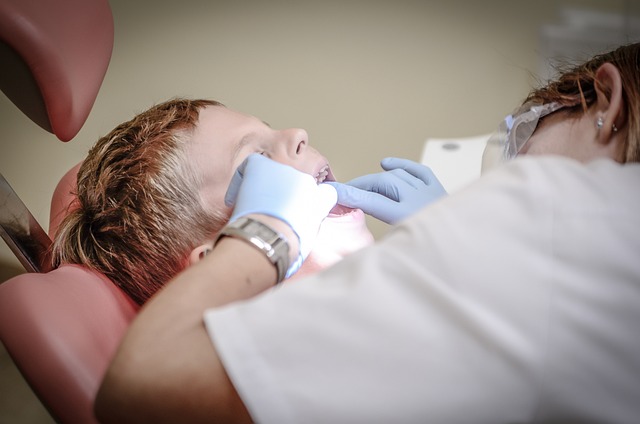Ensuring Safe Tooth Extractions: Ideal Blood Thinners Pause
Welcome to our article on “Ensuring Safe Tooth Extractions: Ideal Blood Thinners Pause”! We understand that tooth extractions can be a worrisome experience, especially if you’re currently taking blood thinners. That’s why we’re here to provide you with essential information and helpful tips to ensure a safe and worry-free dental procedure. Taking care of your dental health is crucial, and by addressing any concerns regarding blood thinners, we aim to make your tooth extraction journey smooth and stress-free. So, sit back, relax, and let’s dive into this informative piece together to get the answers you need!
1. Understanding the Importance of Safe Tooth Extractions
Extracting a tooth may sound intimidating, but it is sometimes necessary to maintain your dental health. Safe tooth extractions are crucial for preventing further complications and maintaining a healthy mouth. Let’s explore some key reasons why is essential.
Preserves oral health: A safe tooth extraction ensures that any damaged or infected tooth is properly removed from your mouth. This helps prevent the spread of infection and avoids potential oral health issues down the line.
Prevents further complications: If a damaged or decayed tooth is left untreated, it can lead to gum disease, abscesses, or even the loss of adjacent teeth. By opting for a safe tooth extraction, you are taking preventative measures to protect your overall dental well-being.
Faster recovery: Safe tooth extractions performed by dental professionals minimize the risk of complications and allow for a quicker and smoother recovery.
- Eliminates pain and discomfort associated with the damaged tooth.
- Reduces the risk of post-extraction infections.
- Ensures proper healing and prevents complications.
By prioritizing safe tooth extractions, you’re making a wise decision for your oral health and overall well-being. Remember, always consult with your trusted dentist to discuss the best treatment options for your specific dental needs.

2. Why is it necessary to pause blood thinners before tooth extractions?
Pausing blood thinners before tooth extractions is necessary to ensure a safe and successful dental procedure. Blood thinners, also known as anticoagulants, are medications that help prevent blood clots by thinning the blood. While they are essential for individuals with certain medical conditions, they can pose potential risks during dental treatments, particularly those that involve surgical procedures like tooth extractions.
- Risk of excessive bleeding: Blood thinners can affect the clotting process, making it difficult for the blood to clot and stop bleeding. This can lead to prolonged bleeding after the tooth extraction, which may be troublesome to manage.
- Complications during healing: By pausing blood thinners, the risk of complications during the healing process can be minimized or avoided. Blood thinners can impede the body’s natural healing response, making it harder for the extraction site to form a stable blood clot, delay the healing process, and increase the chances of infection.
If you are currently taking blood thinners, it is crucial to inform your dentist about your medication before undergoing any dental procedure. They will assess your medical history and consult with your healthcare provider to determine the appropriate time to pause your blood thinners. Remember, the goal is to balance your oral health needs with your overall well-being, ensuring a smooth and safe dental experience.

3. The Relationship Between Blood Thinners and Increased Bleeding during Dental Procedures
Uncovering
Are you on blood thinners and worried about potential bleeding during your next dental procedure? Let us clear the air and provide you with the information you need to put your mind at ease. While it’s true that blood thinners can increase the risk of bleeding, there are steps that your dentist can take to ensure a safe and successful dental visit.
Firstly, it is crucial to inform your dentist about any blood thinners you may be taking, such as aspirin, warfarin, or heparin. This allows them to tailor your treatment plan accordingly and take any necessary precautions. It is important to note that your dentist may consult with your healthcare provider to determine the best course of action before proceeding with any dental procedure.
During your dental visit, your dentist may utilize techniques and tools to minimize bleeding and ensure your safety, which may include:
- Local anesthesia: The use of local anesthesia can help control bleeding during the procedure.
- Gauze and pressure: After the treatment, your dentist may apply gauze and apply pressure to the extraction site, promoting clot formation and reducing bleeding.
- Suture: In some cases, your dentist may use sutures to close the site and aid in the healing process.
Remember, every case is unique, and it’s crucial to consult with your dentist and healthcare provider to develop the most appropriate plan for your specific situation. By ensuring open communication and taking necessary precautions, you can have a worry-free dental experience even while taking blood thinners.

4. Ensuring Your Safety: Dental Precautions for Patients on Blood Thinners
If you are taking blood thinners, it’s important to understand how they can affect your dental health and how to take precautions to ensure your safety during dental treatments. Blood thinners like Warfarin, Xarelto, or Eliquis are commonly prescribed to prevent blood clots and reduce the risk of stroke or heart attack. While they are vital for your overall health, they can potentially increase bleeding during dental procedures. To prioritize your safety, it’s crucial to communicate with both your dentist and prescribing physician to develop a comprehensive plan for your dental care.
Here are a few key precautions to consider:
- Inform your dentist about your medication: Mention your blood thinning medication to your dentist during your consultation. Providing this information helps them assess and plan your dental treatment accordingly, taking the necessary precautions.
- Coordinate with your physician: Consult with your prescribing physician to discuss any necessary adjustments to your medication dosage or timings before dental procedures. They can advise you on any temporary changes needed to reduce bleeding risks.
- Dental procedures scheduling: Schedule your dental treatments or surgeries in coordination with your prescribing physician. Choosing an appropriate time frame between your procedure and the timing of your medication dosages can help minimize bleeding risks.
- Preparation ahead of time: Your dentist may recommend certain tasks prior to your treatment. This could include stopping certain blood thinners momentarily, taking alternatives, or postponing non-essential procedures if necessary. Follow their instructions closely to ensure optimal safety.

5. Consulting with Your Dentist: The First Step in Safe Tooth Extractions
Consulting with your dentist is an essential first step to ensure safe tooth extractions. Your dentist will assess the condition of your tooth and determine if extraction is necessary. They will also consider any potential risks or complications that may arise during the procedure. Here are a few reasons why consulting with your dentist is so important:
- Understanding your individual needs: Your dentist will take the time to fully understand your dental history, medical conditions, and any medications you may be taking. This information helps them tailor the extraction procedure to your specific needs and minimize any potential risks.
- Evaluating the tooth and surrounding structures: Through a thorough examination, your dentist will assess the condition of the tooth, the surrounding gums, and the underlying bone structure. This evaluation helps identify any potential complications, such as an impacted tooth or an infection, which may require additional treatment or adjustments during the extraction process.
- Explaining the procedure and addressing concerns: Your dentist will explain the entire extraction process to you, answering any questions or concerns you may have. They will discuss anesthesia options, potential discomfort, and post-extraction care instructions, ensuring you feel comfortable and confident about the upcoming procedure.
Remember, consulting with your dentist is crucial for safe and successful tooth extractions. It allows your dentist to tailor the procedure to your needs, evaluate any potential complications, and address your concerns. By working together with your dentist, you can ensure a smooth and comfortable extraction process.
6. Following a Personalized Approach: Determining the Ideal Blood Thinners Pause
Blood thinners are commonly prescribed to individuals who are at risk of developing blood clots, which can lead to serious health complications. However, it is important to note that the ideal frequency and duration of blood thinner pauses may vary for each individual. Here are some factors to consider when determining the optimal pause for blood thinners:
1. Medical history: A personalized approach takes into account the individual’s medical history. Factors such as previous clotting incidents, underlying medical conditions, and the severity of these conditions play a pivotal role in determining the frequency and duration of blood thinner pauses.
2. Bleeding risk: The risk of bleeding is an important factor to consider when determining the ideal pause for blood thinners. Certain individuals may be more prone to bleeding due to factors such as age, concurrent use of other medications, or a prior history of bleeding disorders. It is crucial to consider these aspects before deciding on the pause length.
3. Surgery or invasive procedures: If an individual is scheduled to undergo surgery or any invasive procedures, it may be necessary to pause blood thinners. This is essential to reduce the risk of excessive bleeding during and after the procedure. The length of the pause will depend on the type of surgery and the individual’s overall health condition.
4. Individualized monitoring: Regular monitoring by a healthcare professional is crucial during the pause period. This ensures that the individual’s blood clotting levels are within the desired range and helps in determining the duration of the pause.
Remember, the decision to pause blood thinners should always be made in consultation with a healthcare professional who can assess the individual’s unique circumstances and provide personalized recommendations.
7. Identifying the Risks: How Different Blood Thinners Affect Dental Procedures
When undergoing dental procedures, it is important to consider the potential risks associated with blood thinners. Different types of blood thinners can have varying effects on dental treatments, and it is crucial for both patients and dental professionals to be aware of these impacts. In this section, we will explore how various blood thinners can affect dental procedures and provide insights into managing these risks.
Here are a few key points to keep in mind:
- Warfarin (Coumadin): This popular blood thinner can lead to increased bleeding during dental treatments. It is essential to inform your dentist about your warfarin use to ensure appropriate precautions are taken.
- Aspirin: Although aspirin is not considered a strong blood thinner, it can still cause bleeding during dental procedures. Dentists may need to adjust treatment plans or use additional measures to control bleeding in patients taking aspirin.
- Direct Oral Anticoagulants (DOACs): DOACs have become widely used due to their increased safety. However, these medications can still pose risks during dental procedures. Dentists may need to coordinate with the prescribing doctor to temporarily halt or adjust the dosage of DOACs to minimize bleeding risks.
Understanding how different blood thinners affect dental procedures is crucial for ensuring the safety and well-being of patients. By proactively addressing these risks, dentists can tailor treatments and employ suitable preventive measures, ultimately providing optimal dental care while minimizing complications.
8. Navigating the Process: How to Pause Blood Thinners Safely
When it comes to pausing blood thinners safely, it is crucial to follow the proper process to avoid any complications. Here are some steps and precautions you should keep in mind:
1. Consult with your healthcare provider: Before making any changes to your medication, it is essential to consult with your healthcare provider. They will be able to provide you with personalized advice and guidance based on your specific medical needs.
2. Determine the appropriate timing: Work with your healthcare provider to determine the best time to pause your blood thinners. This will vary depending on factors such as the type of medication you are taking and the reason for pausing. Ensure you know how long you need to pause and what symptoms to watch for.
3. Gradually taper off the medication: In some cases, stopping blood thinners abruptly can lead to an increased risk of blood clots. Your healthcare provider may recommend a gradual tapering off period, where you gradually reduce the dosage before completely pausing the medication. Follow their instructions carefully to minimize any potential risks.
4. Monitor for any adverse effects: Pay close attention to any changes in your body during the pause period. This includes any signs of abnormal bleeding, unusual bruising, or discomfort. If you experience any concerning symptoms, contact your healthcare provider immediately for further evaluation.
9. Seeking Expert Advice: Collaborating with Your Dentist and Primary Care Physician
Collaborating with both your dentist and primary care physician is crucial for maintaining your oral and overall health. By seeking expert advice, you can ensure that any dental treatment you receive aligns with your medical history and overall health condition. Below are some key points to consider when working with these healthcare professionals:
1. Share your medical history: It’s important to provide your dentist and primary care physician with comprehensive information about your medical history, including any medications you are currently taking and any pre-existing health conditions. This will allow them to make informed decisions about your dental treatment and identify any potential risks or interactions.
2. Discuss your oral health concerns: Be open and upfront about any oral health issues you may be experiencing, such as tooth sensitivity, jaw pain, or bleeding gums. Your dentist can help diagnose the root cause of these problems and work with your primary care physician to develop a comprehensive treatment plan that addresses both your dental and medical needs.
10. A Smooth Recovery: Ensuring Successful Tooth Extractions for Patients on Blood Thinners
If you are currently taking blood thinners and need to undergo a tooth extraction, it is natural to have concerns about the procedure and the potential complications that may arise. We want to assure you that our team is experienced in handling extractions for patients on blood thinners, and we are here to ensure a smooth and successful recovery for you. Here are a few important things to keep in mind:
- Preparation is key: Before your extraction, it is crucial to inform your dentist about any blood thinners you are taking and provide a detailed medical history. This allows us to tailor the procedure specifically to your needs and minimize any risks associated with your medication.
- Consult with your prescribing physician: It is essential to consult with your prescribing physician before an extraction to discuss any possible adjustments to your medication regimen. They will guide you on how to manage your blood thinners leading up to and following the procedure, ensuring your safety throughout the process.
- Close monitoring during the procedure: Our skilled dental professionals will closely monitor your blood pressure and bleeding tendencies during the extraction. This allows us to take immediate action if necessary and ensure your comfort and safety throughout the procedure.
Rest assured, our team is well-versed in successfully managing tooth extractions for patients on blood thinners. We take all necessary precautions to minimize bleeding and promote a smooth recovery. Remember to follow any post-extraction instructions carefully, and don’t hesitate to reach out to us with any concerns or questions you may have. Your oral health and your overall well-being are our top priorities.
Frequently Asked Questions
Q: What are tooth extractions and why are they performed?
A: Tooth extractions are dental procedures that involve removing a tooth from its socket in the jawbone. They are commonly performed when a tooth is decayed, damaged, infected, or when there’s overcrowding in the mouth.
Q: Why is it necessary to pause blood thinners before tooth extractions?
A: Blood thinners are medications that reduce the blood’s ability to clot. It’s important to pause these medications before a tooth extraction to minimize excessive bleeding during the procedure. Failure to do so could result in prolonged bleeding and potential complications.
Q: Which types of blood thinners are commonly used and why?
A: Common blood thinners include antiplatelet drugs like aspirin, clopidogrel, and dipyridamole, as well as anticoagulants like warfarin, heparin, and enoxaparin. These medications are typically prescribed to prevent blood clots, reduce the risk of stroke, or manage heart conditions.
Q: When should blood thinners be paused before a tooth extraction?
A: The specific pause time can vary depending on the type of blood thinner and the patient’s individual circumstances. It is crucial to consult with both the dentist and the prescribing healthcare provider to determine the ideal timeframe for pausing the medication before the procedure.
Q: Are there any risks associated with pausing blood thinners?
A: Pausing blood thinners does carry some risks, as it increases the chances of developing blood clots in certain individuals. This is why it is essential to consult with a healthcare professional who can evaluate the patient’s medical history and determine the safest approach.
Q: How can patients prepare for a tooth extraction if they are on blood thinners?
A: Patients should inform both their dentist and prescribing healthcare provider about their blood thinner usage. An open discussion will allow the dental team to consider the best approach to ensure a safe tooth extraction. It may involve adjusting the medication dose or timing, or even requesting alternative treatment options.
Q: What precautions should dentists take when performing tooth extractions on patients who use blood thinners?
A: Dentists should have a comprehensive understanding of the patient’s medical history, including details about their blood thinner usage. They may need to coordinate with the prescribing healthcare provider to establish the ideal pause time, or they may decide on alternative extraction techniques to minimize risks.
Q: Are there any alternative treatment options for patients on blood thinners who require tooth extractions?
A: In some cases, dental professionals might explore alternative treatment options to avoid the need for a tooth extraction or minimize the risks associated with it. This could involve more conservative approaches, such as root canal treatment. Ultimately, the decision will depend on the patient’s specific dental needs and medical condition.
Q: What should patients do after a tooth extraction if they are on blood thinners?
A: Patients should closely follow any post-operative instructions given by their dentist and prescribing healthcare provider. This may include gentle pressure on the extraction site using gauze to control bleeding, avoiding certain foods or activities that may disrupt the healing process, and closely monitoring for any unusual symptoms or excessive bleeding.
Q: Can patients resume their blood thinners after a tooth extraction?
A: Once the tooth extraction procedure is successful and bleeding is under control, patients should consult their prescribing healthcare provider regarding when to resume their blood thinners. It is crucial to follow the advice of healthcare professionals in order to maintain a safe and effective medication routine.
Conclusion
In conclusion, ensuring safe tooth extractions is of utmost importance in maintaining oral health and overall well-being. When it comes to patients who are on blood thinners, it is crucial to take necessary precautions to minimize the risks and ensure a successful extraction process.
By collaborating closely with your dentist and healthcare team, you can make informed decisions regarding your dental treatment. Communicate openly about your medical history, including any medications you are taking, particularly blood thinners. This will enable your dental professional to choose the ideal blood thinner pause, reducing the chances of excessive bleeding during and after the extraction procedure.
Remember, each patient’s condition is unique, and the decision to pause blood thinners should be made in consultation with your healthcare provider. In some cases, the benefits of continuing the medication may outweigh the risks, while in others, temporary discontinuation might be essential.
Should a blood thinner pause be deemed necessary, follow the guidelines provided by your healthcare provider closely. Maintain good oral hygiene practices, such as regular brushing and flossing, to minimize the risk of infection during this pause period.
Throughout the entire process, your dentist will monitor your progress and adjust the treatment plan accordingly. After the tooth extraction, make sure to follow any post-operative instructions, including taking prescribed medications, managing pain and swelling, and attending any necessary follow-up visits.
Remember, maintaining open and honest communication with your dentist and healthcare team is key. They are there to support you and ensure a safe and successful tooth extraction.
With proper precautions, an ideal blood thinner pause, and professional guidance, you can undergo a tooth extraction with confidence, knowing that your oral health is in good hands. So don’t let concerns about blood thinners deter you from seeking the dental care you need. Schedule an appointment today and take the first step towards a healthier smile.






